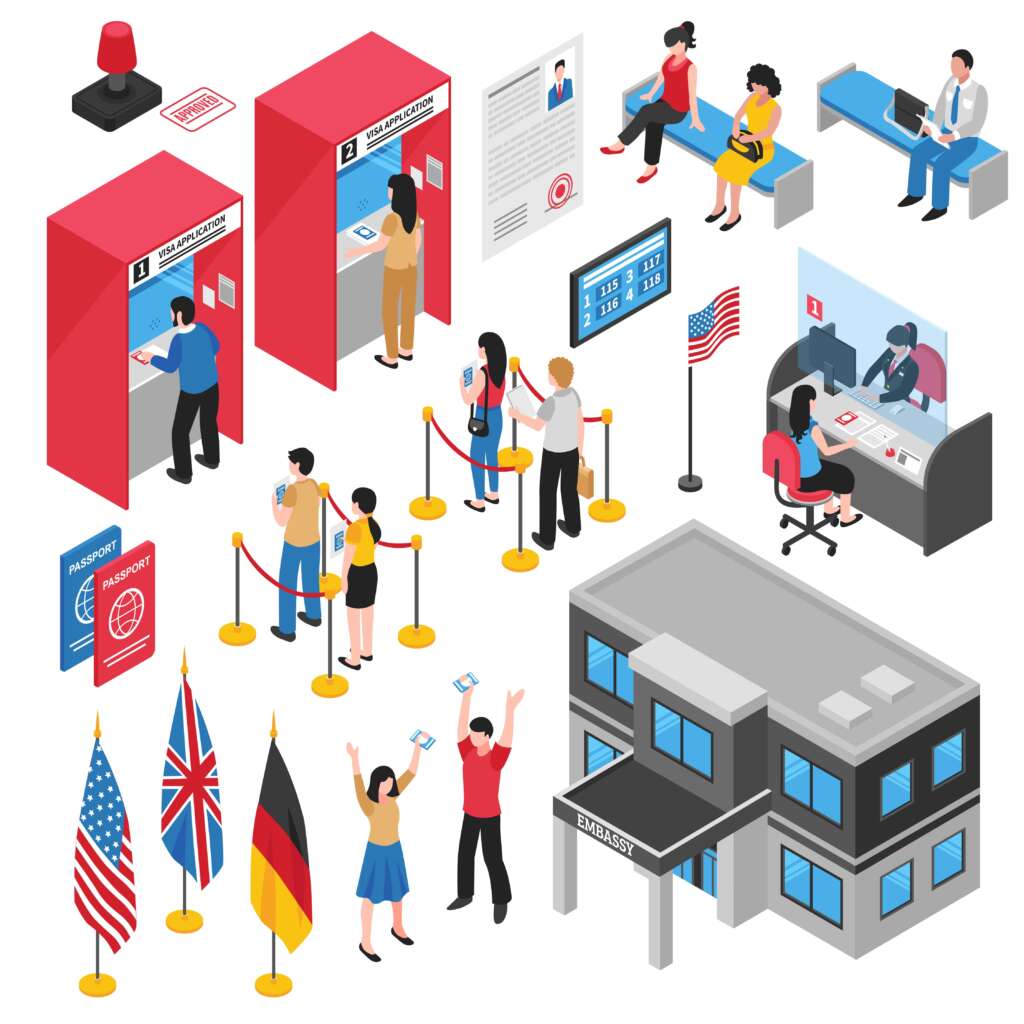
Overview of the UK Immigration System: Entry Clearance and Visa Categories
Welcome to the overview of the UK Immigration System: Entry Clearance and Visa Categories. This guide aims to provide you with a comprehensive understanding of the UK’s immigration system, specifically focusing on entry clearance and various visa categories.
The United Kingdom’s immigration system is designed to manage the entry and stay of individuals from around the world. Whether you are planning to visit the UK for a short period, study, work, or settle permanently, understanding the entry clearance process and visa categories is crucial.
This guide will cover the fundamental aspects of the UK’s immigration system, including the process of entry clearance, visa application procedures, and an overview of different visa categories available for various purposes. By navigating through this guide, you will gain valuable insights into the requirements, eligibility criteria, and key considerations for each visa category.
It is important to note that the UK’s immigration system is subject to change, and the information provided in this guide is based on the knowledge available up until September 2021. Therefore, it is advisable to refer to the official UK government sources or consult with immigration experts for the most up-to-date and accurate information.
Whether you are a prospective visitor, student, worker, or someone looking to settle in the UK, this guide will serve as a valuable resource to help you navigate the complexities of the UK’s immigration system. Understanding the entry clearance process and visa categories will enable you to make informed decisions and proceed with your immigration plans effectively.
Table of contents
- What is the Points-Based System in the UK immigration system?
- How do I apply for a UK visa?
- Can I work in the UK under a student visa?
- Can I switch from one visa category to another within the UK?
- What are the English language requirements for a UK visa?
- Understanding Entry Clearance
- Types of UK Visa Categories
- Conclusion
What is the Points-Based System in the UK immigration system?
The Points-Based System is a framework used to assess and manage immigration applications in the UK. It assigns points based on various criteria such as skills, qualifications, salary, and English language proficiency.
How do I apply for a UK visa?
To apply for a UK visa, you need to follow the specific requirements and procedures based on the visa category you are applying for. Generally, you will need to complete an online application form, provide supporting documents, pay the application fee, and attend a biometric appointment.
Can I work in the UK under a student visa?
Yes, in most cases, students holding a valid Tier 4 (Student) visa are allowed to work part-time during their studies. However, there are limitations on the number of hours you can work, and it is essential to check the specific conditions of your visa.
Can I switch from one visa category to another within the UK?
A: Yes, it is possible to switch from one visa category to another while you are in the UK, depending on your circumstances and the eligibility criteria for the visa you wish to switch to. However, certain restrictions and requirements may apply, and it is recommended to seek professional advice for a smooth transition.
What are the English language requirements for a UK visa?
A: The English language requirements vary depending on the visa category. In general, applicants may need to demonstrate their English language proficiency by taking an approved English language test, meeting a specific language level, or being exempted based on certain criteria such as nationality or education in English-speaking countries.
Understanding Entry Clearance
Entry clearance is a crucial aspect of the UK immigration system. It refers to the process by which individuals outside the UK obtain permission to enter the country for a specific purpose, such as work, study, or visiting family. Entry clearance is typically granted in the form of a visa or entry clearance certificate.
The entry clearance process involves submitting an application to a UK visa application center or an embassy/consulate in the applicant’s home country. The application is assessed based on the intended visa category’s specific requirements and eligibility criteria.
During the entry clearance process, applicants are typically required to provide supporting documents, such as a valid passport, photographs, proof of financial means, accommodation details, and information related to the purpose of their visit or stay. Additionally, applicants may need to attend an interview and provide biometric data, including fingerprints and a photograph.
Definition and Significance of Entry Clearance
Entry clearance refers to the process through which individuals outside the UK seek permission to enter the country for various purposes, such as work, study, or visiting family. It involves obtaining a visa or entry clearance certificate from a UK visa application center or an embassy/consulate in the applicant’s home country. Entry clearance is a crucial step in the UK immigration process as it determines whether an individual is granted permission to enter the country.
Role of Entry Clearance in the UK Immigration Process
Entry clearance plays a vital role in the UK immigration process as it serves as a pre-entry assessment to ensure that individuals meet the necessary requirements and adhere to the immigration rules. The entry clearance officers carefully assess the applicant’s eligibility, intentions, and supporting documents to make informed decisions regarding their entry into the UK. By conducting this assessment before individuals travel to the UK, the entry clearance process helps maintain border security and ensure compliance with immigration regulations.
Entry Clearance Process and Application Requirements
The entry clearance process involves submitting an application to a UK visa application center or an embassy/consulate in the applicant’s home country. The specific application requirements vary depending on the intended visa category. Generally, applicants are required to provide supporting documents such as a valid passport, photographs, evidence of financial means, accommodation details, and information related to the purpose of their visit or stay.
In addition to providing documents, applicants may be required to attend an interview and provide biometric data, including fingerprints and a photograph. Entry clearance officers thoroughly review the application and supporting documents to assess the applicant’s eligibility and intentions. They consider factors such as the applicant’s intention to leave the UK at the end of their permitted stay, financial stability, and compliance with immigration laws.
If the entry clearance application is successful, the applicant is issued a visa or entry clearance certificate. This document enables them to travel to the UK and seek entry at a port of entry, such as an airport or seaport. However, possessing entry clearance does not guarantee entry, as immigration officers at the port of entry have the final authority to grant or refuse entry based on their assessment.
Understanding the entry clearance process and meeting the specific application requirements for the intended visa category is crucial for a smooth and successful entry into the UK. It is advisable to consult official government sources or seek professional immigration advice to ensure a comprehensive understanding of the entry clearance procedures and requirements.
Types of UK Visa Categories
In the UK immigration system, there are various visa categories that individuals can apply for based on their specific purposes and circumstances. These visa categories provide permission to enter and stay in the UK for different durations and purposes. Here are some of the main types of UK visa categories:
Visitor Visas:
- Standard Visitor Visa: For tourism, business, or visiting family/friends.
- Marriage Visitor Visa: For individuals coming to the UK to get married or enter into a civil partnership.
- Permitted Paid Engagement Visa: For short-term paid work as an expert in a specific field.
Work Visas:
- Skilled Worker Visa: For individuals with a job offer from a UK employer in a skilled occupation.
- Intra-Company Transfer Visa: For employees of multinational companies being transferred to a UK branch.
- Startup Visa: For entrepreneurs starting a business in the UK for the first time.
- Innovator Visa: For experienced entrepreneurs with innovative business ideas.
Study Visas:
- Student Visa: For individuals enrolling in a course at a recognized UK educational institution.
- Child Student Visa: For children aged 4 to 17 studying at an independent school in the UK.
Family Visas:
- Spouse/Civil Partner Visa: For individuals joining their spouse or civil partner who is a UK resident.
- Unmarried Partner Visa: For individuals in a long-term relationship with a UK resident.
- Parent Visa: For parents of children who are UK residents and under the age of 18.
Settlement Visas:
- Indefinite Leave to Remain (ILR): For individuals who have lived in the UK for a certain period and meet the eligibility criteria for permanent residency.
- British Citizenship: For individuals who have met the requirements for naturalization and wish to become British citizens.
Other Categories:
- Tier 1 Investor Visa: For high-net-worth individuals making a substantial investment in the UK.
- Global Talent Visa: For individuals with exceptional talent or promise in the fields of science, arts, humanities, engineering, or digital technology.
It’s important to note that each visa category has specific eligibility requirements, application processes, and permitted durations of stay. Consulting official government sources or seeking professional immigration advice is recommended to ensure accurate and up-to-date information when considering a particular visa category.
Conclusion
Understanding the UK immigration system and the various visa categories available is crucial for individuals seeking to enter and stay in the UK for different purposes. The entry clearance process plays a significant role in assessing eligibility and ensuring compliance with immigration rules. By obtaining entry clearance in the form of a visa or entry clearance certificate, individuals gain permission to travel to the UK and seek entry at a port of entry.
The UK offers a wide range of visa categories, each designed to cater to specific needs and circumstances. Visitor visas allow individuals to visit the UK for tourism, and business, or to visit family and friends. Work visas provide opportunities for employment in skilled occupations, intra-company transfers, and entrepreneurial ventures. Study visas enable individuals to pursue educational opportunities at recognized UK institutions, while family visas facilitate joining spouses, civil partners, or children who are UK residents. Settlement visas such as Indefinite Leave to Remain (ILR) and British Citizenship offer pathways to long-term residency and citizenship.



